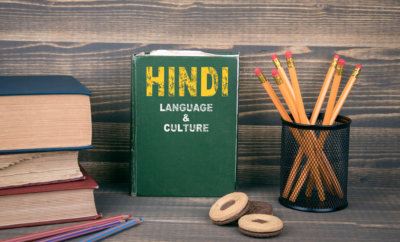Life
Tweets in Hindi Becoming More Popular Among Indians: U.S. Study

Twitter application icon on smartphone screen.
Photo: Bigstock
Indians are more likely to share and like the tweets posted in Hindi language as compared to those in English, according to a University of Michigan study.
Tweets in Hindi are gaining more popularity among netizens in India, which is evident from the fact that the most liked or retweeted posts of Indian politicians are in Hindi, according to a study by researchers in the United States.
“Hindi language tweets are more likely to be shared and favorited in India when compared to English,” says the study, “Tweeting in Indian language widens politicians’ reach,” by the University of Michigan.
A majority of posts on Twitter until 2014 were from the English-speaking urban population. The scenario on the social media has changed since then, the study said.
“Of the 15 most retweeted messages by Indian politicians in the last year, 11 have used Hindi. All 15 of these messages are from the prime minister,” said the study, published in the Economic and Political Weekly.
Political parties have recognized the importance of the social media in enhancing their political reach and the ruling Bharatiya Janata Party (BJP) is still leading the race in the number of social media followers.
“While the ruling Bharatiya Janata Party still leads significantly in terms of social media following because of a top-down push from the center, other parties are also recognizing the role of the social media in political outreach,” said Joyojeet Pal, assistant professor at University of Michigan’s School of Information and lead author of the study.
The study found Indian Prime Minister Narendra Modi leading in terms of online following but when it came to retweet figures, Congress leader Rahul Gandhi was far ahead from him. Gandhi’s tweets in Hindi have been widely retweeted.
“Between January and April 2018, the median retweet count of Rahul Gandhi’s tweets consistently outscored the median retweet count of other Indian politicians’, including the Prime Minister, who has over five times as many followers,” says the report.
“A reason for this can be that his tweets have taken on an aggressive style of confrontation that has helped the popularity of his messages,” said Pal, as per the University statement. There has been an extensive use of one-liners, wordplay and rhymes in his tweets and often these tweets have been in regional languages, he added.
Underlining the importance of the local language in expressing the exact emotion without any disruption, Pal said, “Language can also be an indicator of the kind of emotion being expressed. Some of the most retweeted messages in Hindi have sarcasm or insults. This aligns with previous research that stronger emotions are more likely to be in local language than in English.”
Pal and co-researcher Liz Bozarth say that it is too early to depict a net impact of language quantitatively, but they underline two main trends — Hindi tweets do better for political parties post-2016 and non-Hindi language tweets do not perform as good as the ones in English or Hindi.
“We are moving closer to an era in which politicians can actively switch to communicating with their constituents directly through social media, bypassing the traditional news media altogether,” Pal said.
For the study, researchers aggregated 274 politicians, who are party leaders or hold an official post in a party. The political accounts were chosen on the basis of the number of followers, which had to be at least 50,000.




You must be logged in to post a comment Login